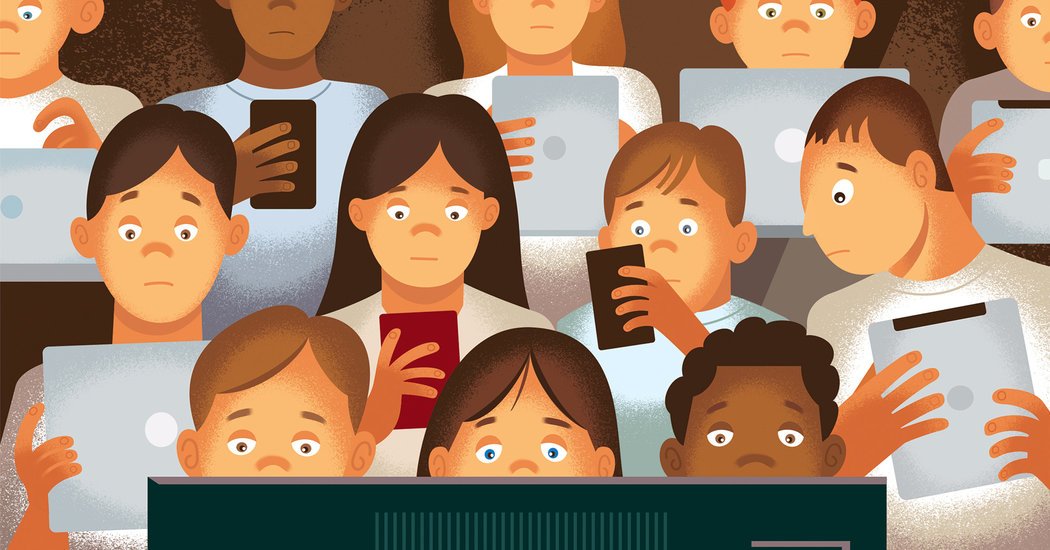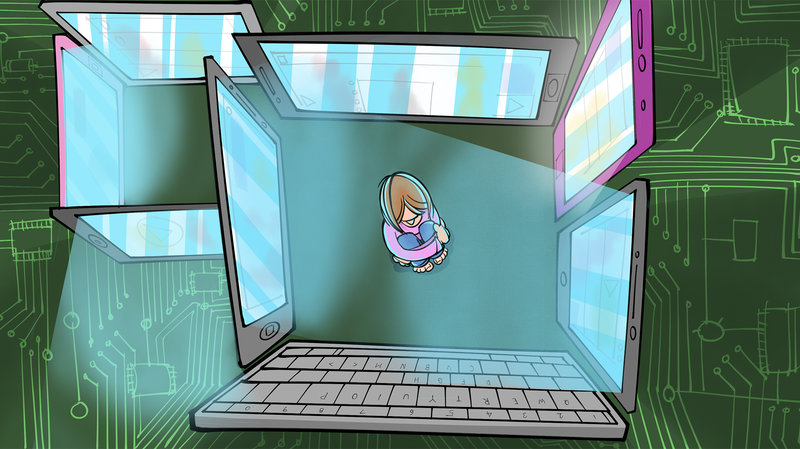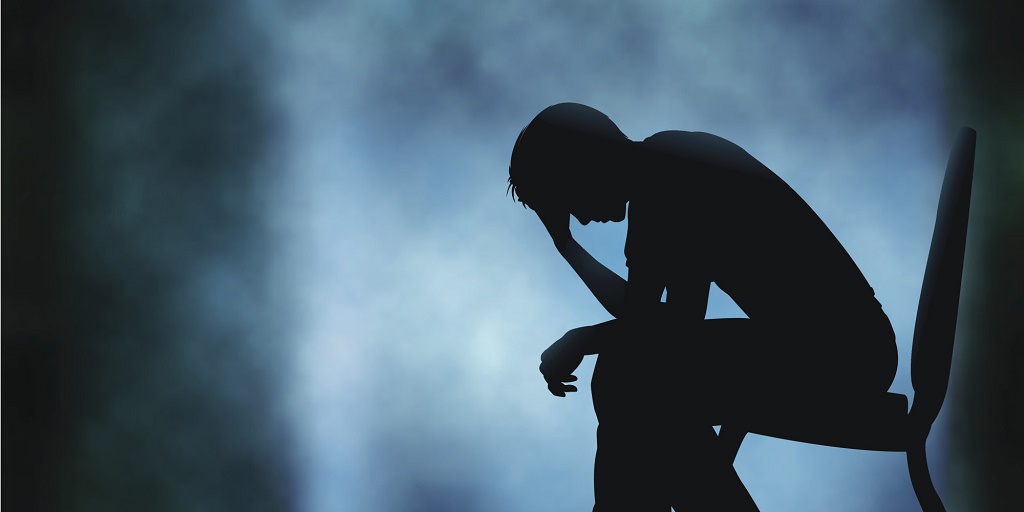Technology can be liberating only if we cultivate the nuanced art of a creative and life-affirming engagement with the gadgets; otherwise, we are bound to lose control over the rhythm of life.
Avijit Pathak is a Professor of Sociology at JNU, New Delhi.

“Bengaluru clinic helps Internet addicts log out” – a report published in a leading newspaper (The Indian Express, February 11, 2019) makes me reflect once again on the meaning of living in a world that allows technology to invade every sphere of life. Why is it that we become over-indulgent, and allow technology to enslave us? If we need psychiatrists to help us to come out of the pathology of this addiction, it becomes obvious that technology has ceased to play a liberating role, and we have missed the subtle art of living with a nuanced interplay of human creativity and machineries or gadgets. It is good that there are clinics and psychiatrists to cope with this new form of neurosis. However, we need to go deeper into the socio-cultural roots of the crisis.
Gadgets: Falling into the Trap
To begin with, let us think of the new needs and anxieties that we have allowed technology to create. I wish to give a simple illustration to make my point. Here is a mobile phone–simple and affordable. Suppose, I carry it with me; and from anywhere I can use it, talk to my friends and loved ones; and they too, if the need arises, can contact me even if I am driving in the hills, or travelling in a local train. Yes, it makes the process of communication smooth. It conquers the obstacles relating to the fixed location of the land phone. Anywhere…Anytime: the instantaneity of the mobile is magical.
However, its very benefit begins to create new needs and anxieties. I keep using it unnecessarily (say, sending messages to my friends about every details of my life -whether I am in a market for buying fish, sweets and fruits, or whether I have ordered a pizza for my lunch, or whether a cup of tomato soup has been served in the Rajdhani Express, or whether they have seen the latest Bollywood blockbuster), and become anxious, angry and disappointed if they do not respond to my calls or messages instantly. Well, the market evolves further; it has already made me dependent on the mobile; I remain preoccupied with all sorts of ‘discounts’, ‘offers’ and ‘unlimited talk time’. Again, the ‘digital world’ has made it impossible for me to be free from it. My ATM needs it; my Aadhar needs it; and my office needs it. The mobile is now a vital organ of my body!
The story does not end here. Now the ‘smart phone’ can do so many things simultaneously. It is a phone; it is a camera; and with the Internet , it is my computer, my television. I am amazed. It is hypnotizing. The fact that it is a camera, I begin to click without any restraint. A selfie, a mountain peak, a birthday cake, a hospital bed, a road accident, a political protest -everything has to be captured, and shared (through Facebook) immediately; and the worth of my existence, I begin to believe, depends on the ‘likes’ and ‘shares’. How many ‘subscribers’ or ‘followers’ do I have? It becomes difficult to escape this question. The fact that the smart phone is in my hand, and the Internet is here, I need to see my email after every five minutes; or I must look at the ‘latest’ news, or something that has become ‘viral’ on the social media. Everything has to be captured and possessed immediately; I should not ‘lag behind’. I am always in a hurry. I have lost the contemplative art of silence-the ability to live with myself without any mediations. Slowly and slowly, I lose control over myself, and I am caught in a vicious circle -new technology, new gadgets, new demands, new needs, new anxieties…

It is also important to realize that technologists have emerged as new magicians in our times. Even though modernity has taught us to combat the influence of black magic, the ideology of ‘progress’ has its own set of unexamined assumptions. For instance, we are led to believe that every new piece of technology is necessarily good and desirable, we should learn to adjust to it, and any discomfort with it is necessarily a sign of ‘backwardness’ or ‘cultural lag’. ‘Why is it that I am not on Facebook or Twitter? Or why is it that I do not have a smart phone?’-they have asked me this question time and again. It is very difficult for me to make them realize that my life goes on meaningfully with a simple mobile, and without much techno-indulgence. I read books, meet my friends, write articles, deliver lectures, see the sky, enjoy my walk, and crack jokes with my friends. Possibly, many of them think that I am anti-modern and conservative. In other words, the point I am trying to put forward is that we are becoming victims of a new superstition sanctified by technologists: Never say ‘no’ to technology; and your modernity depends on the gadgets you use! Feel its devastating consequence. Let me quote from the report:
In a recent case, a single boy child was gaming 8-9 hours a day and was very irregular to college. The only issue was excessive technology use and lack of interest in other activities. We worked initially on lifestyle changes and communication. We made a contract for him to go three to four hours to college but did not break his link with technology.
Finally, what needs to be acknowledged is that in our times characterized by hyper-competitiveness, psychic pressure caused by consumerism and its gospel of ‘good living’, and declining communitarian relationships in urban spaces, most of us experience a high degree of alienation and depersonalization. Possibly, the hyper reality of media simulations gives us a temporary relief, or an illusion of ‘importance’. If your Facebook post is shared by many, or becomes ‘viral’, you begin to feel that you really matter, and the entire world is interested in you. However, things change fast; and nothing lasts for more than a day. It intensifies the desire; and you keep doing all sorts of things: the continual display of ‘selfies’, or the compulsive urge to perform, and look ‘good’ , ‘presentable’ and ‘happy’ on the screen. It does not seem to have an end. Think of this story:
Among the case studies at the technology de-addiction clinic at the National Institute of Mental Health and Neurosciences in Bengaluru is that of a 21-year-old college student who took selfies every 15-20 minutes. Doctors said that her obsession with the thought that her appearance is somehow flawed was the consequence of a mental health ailment called body dysmorphic disorder. She was treated with a combination of medication and behavior change strategies, mainly focused on restructuring the thinking process at Nimhans. There was improvement in two months. The outcome of the therapy was positive. 15 sessions were carried out with the client. Mirror use reduced to 5-6 times per day. Mobile use reduced to 2-3 hours a day.
The Art of Reclaiming Life
Let the clinics and psychiatrists do their job. But then, the question I ask is whether it is possible for people like us–teachers and parents–to do something about it. I believe that we need self-reflection; and only then is it possible to take these two postulates seriously.
(a) Nothing can replace the ecstasy of the human touch. How unfortunate it is to regard the means as an end in itself. Yes, technology is merely a means; it is not the substance of my life. It is good that occasionally I talk to you over the Skype; I send messages and enquire about your health; and on You Tube I watch Zygmunt Bauman speaking on ‘liquid modernity’. These meaningful uses enrich me. However, if I confuse life with the technologically mediated ‘virtual reality’, I miss a great deal. If I fall sick, I need a friend to come, touch my head, give me a glass of water, and tell me a story. Emails, messages, WhatsApp: nothing would help me to recover. It is love–the intensity of human touch–that conquers death. Likewise, a direct face-to face interactive dialogue with friends in the presence of a dialogic teacher–the ecstasy of it cannot be replaced by the You Tube. In other words, we need to reestablish our claim over life–face-to-face human interaction with an intense experience of the real world with all its emotions and complexities. Otherwise, despite the ‘communication revolution’, real communication would disappear from life; and even amid ‘shares’, ‘likes’, ‘followers’ and ‘subscribers’, you would find none to take you to the hospital if you meet with an accident in the street of Delhi or Mumbai.
(b) Wisdom lies in the art of making meaningful choices. Yes, it is a magical world filled with the abundance of possibilities: a pornographic site, a trailer of the latest Bollywood film, an interview with Shashi Tharoor on love, politics and Hinduism, a woman showing what she has cooked and how she eats, Ravish Kumar or Vinod Dua speaking on the Rafale deal, Priyanka Chopra’s love and travel, a Netflix sensation, a book discussion… What do I watch? For how long do I watch? Or is it possible not to watch at all? I believe we ought to raise these questions. Otherwise, we would miss what really matters: a creative engagement with life. You have given a smart phone to your child. But you have never shown her the radiant moon, or, a bird flying in the sky. You have never encouraged the her to invent a game on her own. So what do you expect? Your child is likely to indulge herself with all sorts of computer games; or she might be slowly addicted to all that is loud, instinctive and sensational.
What does happen if one day, except some urgent calls, you switch off your mobile? Let us imagine it. Possibly, you would not know what Arun Jaitley has written on his blog; you would not know whether the BJP has asked Rahul Gandhi to apologize for everything he does; you would not know whether something has become ‘viral’. But then, possibly you would find yourself. You would experience silence; you would become mindful; you would be able to hear the whisper of trees, you would recall a fascinating story your grandmother told you when you were a child; and possibly, with the lightness of being, you would rediscover the ocean in your beloved’s eyes. You have to make the right choice.
Technology-if not used creatively-can prove to be a monster. Be aware, friends.














